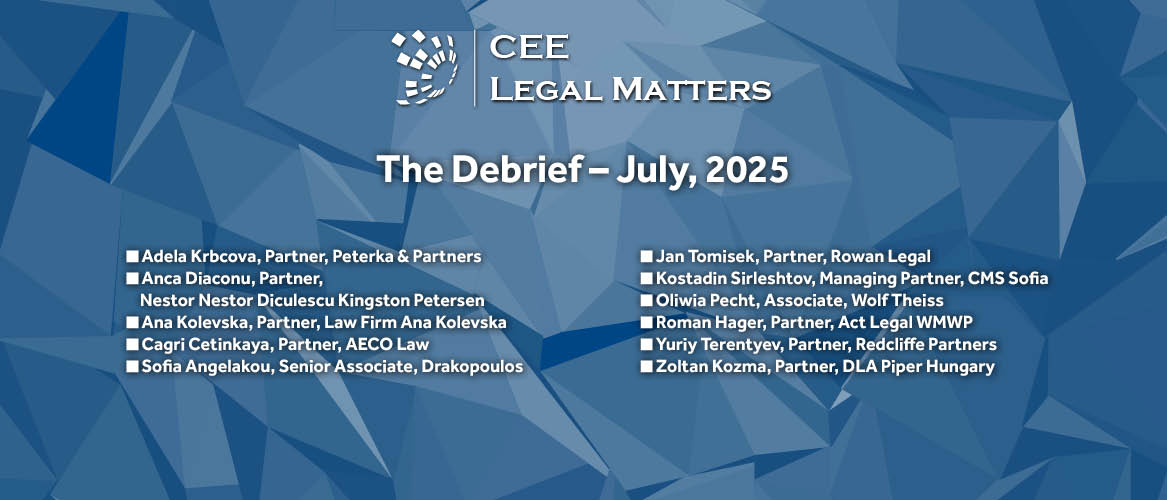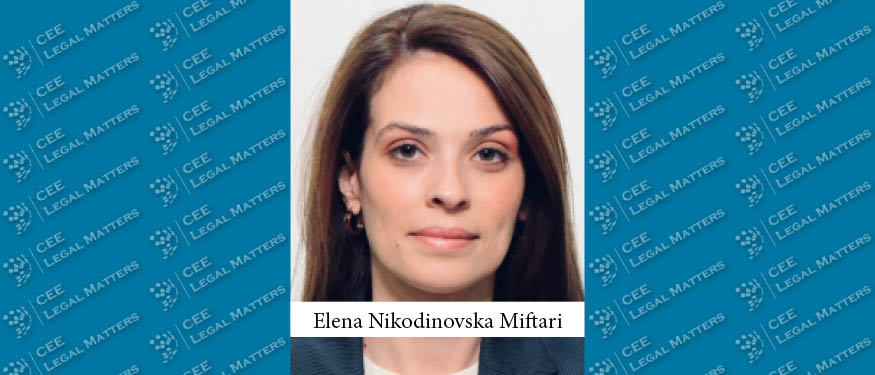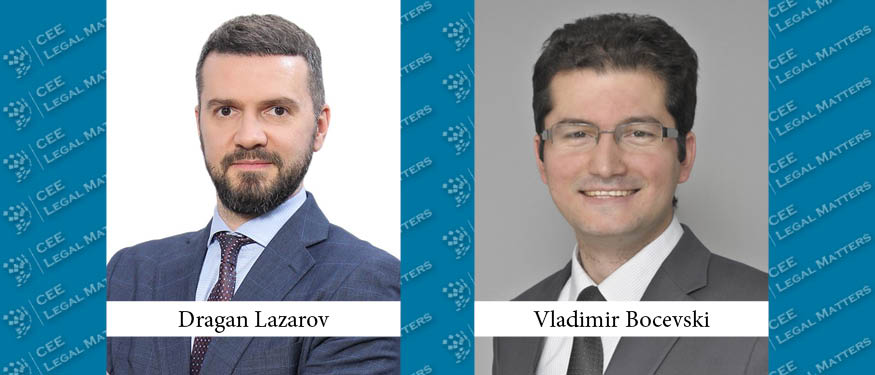CMS, working with Ashurst, has advised Renalfa IPP on the development of its EUR 1.2 billion investment program in photovoltaic, battery electricity storage systems, and wind projects across Bulgaria, Hungary, North Macedonia, and Romania. The firm also advised on securing a EUR 315 million club loan facility led by the EBRD and backed by an InvestEU loss guarantee. DGKV, and reportedly A&O Sherman and PHH, advised the lenders.
The Debrief: July 2025
In The Debrief, our Practice Leaders across CEE share updates on recent and upcoming legislation, consider the impact of recent court decisions, showcase landmark projects, and keep our readers apprised of the latest developments impacting their respective practice areas.
North Macedonia Passes New Electronic Communications Act
On 27 June 2025, the Assembly of North Macedonia adopted a new Electronic Communications Act (ECA). This landmark legislation represents a comprehensive overhaul of the country's digital regulatory framework, aligning it with the European Electronic Communications Code (Directive 2018/1972) (the "Directive") and the Gigabit Infrastructure Act (Regulation 2024/1309) (the "Regulation").
North Macedonia's Digital Agenda: A Buzz Interview with Elena Nikodinovska Miftari of Law Office Emil Miftari
In recent months, North Macedonia has introduced key legislative reforms in digital transformation, construction, energy, and the judiciary to support its economic and institutional development, according to Law Office Emil Miftari Attorney at Law Elena Nikodinovska Miftari.
The New Law on Labour Engagement of Persons – A True Reform or a Partial Solution?
With the adoption of a new legislative solution in the Republic of North Macedonia, introduced through the Law on Labour Engagement of Persons, which shall enter into force on 1 January 2026, a systemic and coherent framework will be established for the regulation of temporary and seasonal labour engagement. The primary objective of this law is to formalize a segment of the labour market that, to date, has remained largely unregulated or informal, with particular focus placed on three sectors: agriculture, hospitality, and domestic services.
Karanovic & Partners Advises Paysera on Securing EMI License in North Macedonia
Karanovic & Partners has advised Paysera North Macedonia on obtaining an Electronic Money Institution license.
FDI Momentum in North Macedonia
Foreign direct investment in North Macedonia has surged in recent years, with 2024 marking a particularly strong period for inflows, despite global uncertainties such as supply-chain disruptions and regional economic slowdowns, according to Law Office Lazarov Managing Partner Dragan Lazarov and Cakmakova Advocates Junior Partner Vladimir Bocevski.
Inside Insight: Interview with Ana Zakovska of IT Labs
IT Labs Group General Counsel and DPO Ana Zakovska discusses her transition from private practice to in-house roles in the ICT sector, the evolving nature of legal work, and how privacy and AI are shaping the industry.
Know Your Lawyer: Emilija Apostolska of Apostolska Aleksandrovski & Partners
An in-depth look at Emilija Apostolska of Apostolska Aleksandrovski & Partners covering her career path, education, and top projects as a lawyer as well as a few insights about him as a manager at work and as a person outside the office.
North Macedonia: Outsourcing – Employment Issues
Outsourcing involves a transfer by a business (customer) to a third party (supplier) of the operational responsibility for the provision of a distinct business function, process, or service. Given the inherent transfer of responsibility, many outsourcing arrangements involve a transfer to the supplier of those employees who were engaged by the customer in the activity that is being outsourced. Macedonian law does not specifically regulate outsourcing transactions. Nonetheless, the Macedonian Law on Labor Relations 2005 (Labor Law) is harmonized with the EU Transfer of Undertakings Protection of Employment Directive 2001/23/EC of 12 March 2001 (TUPE) and, therefore, applies to the transfer of employees both on the initial outsourcing and on any subsequent or second-generation outsourcing.
New Energy Law in North Macedonia
On May 21, 2025, the new Energy Law was published in the Official Gazette of the Republic of North Macedonia, adopted by the North Macedonia Assembly on May 14. This systemic and reform-oriented law marks a pivotal step in the transformation of the national energy sector, aligning it with European standards, sustainable development goals, and consumer protection principles.
North Macedonia Adopts New Law to Regulate Seasonal and Occasional Employment
In a progressive move towards formalising seasonal and occasional work, the Assembly of North Macedonia has adopted a groundbreaking law to regulate temporary employment across key sectors. This legislative development aims to streamline the hiring process for temporary workers while ensuring they receive essential social security benefits.
New Energy Law in North Macedonia – Major Novelties for Development of Energy Capacities
Starting from 29 May 2025 a new Energy Law starts to apply in North Macedonia. This new regulatory framework serves for transposition of the Clean Energy Package into the national legislation and introducing major novelties, such as new development process for energy generation and storage capacities, integration of e-mobility to the electricity grid, additional possibilities for development of natural gas and heating networks, etc.
New Amendment Eases Data Transfer Rules from North Macedonia to NATO Nations
On 14 May 2025, significant changes were made to North Macedonia’s personal data protection legislation. The Assembly of the Republic passed an amendment to expand the nations where personal data can be shared freely, without facing third-country transfer restrictions.
Settlement in Misdemeanor Proceedings: A Modern Tool for Efficient Legal Sanctioning of Legal Entities
The institute of settlement, within the scope of misdemeanors, was introduced into Macedonian legislation by the Misdemeanor Act in 2019. In the context of overburdened courts, all mechanisms that facilitate judicial processes are more than welcome.
The Epidemic of Generic: The Problem with Law Firm Messaging
Big law firms can coast on boring slogans. They’ve got the clout, the infrastructure, and the impressive list of past clients to do the talking. But if you’re a smaller firm and your website sounds like everyone else’s, you are disappearing into the beige background of legal marketing noise.
Consumer Protection and Competition in North Macedonia: A Buzz Interview with Ana Pepeljugoska of Law Office Pepeljugoski
North Macedonia’s new government has sparked a wave of legal and regulatory changes, with renewed competition enforcement while updates in consumer protection, energy, construction, and copyright raise new questions, according to Law Office Pepeljugoski Partner Ana Pepeljugoska.
Why Most Law Firm Websites Won’t Meet the 2025 Accessibility Deadline
The European Accessibility Act (EAA), approved in 2019, takes effect on June 28, 2025. The Act requires a wide range of products and services – such as consumer electronics, vending machines, websites, and mobile apps – to meet accessibility standards for people with disabilities.




































